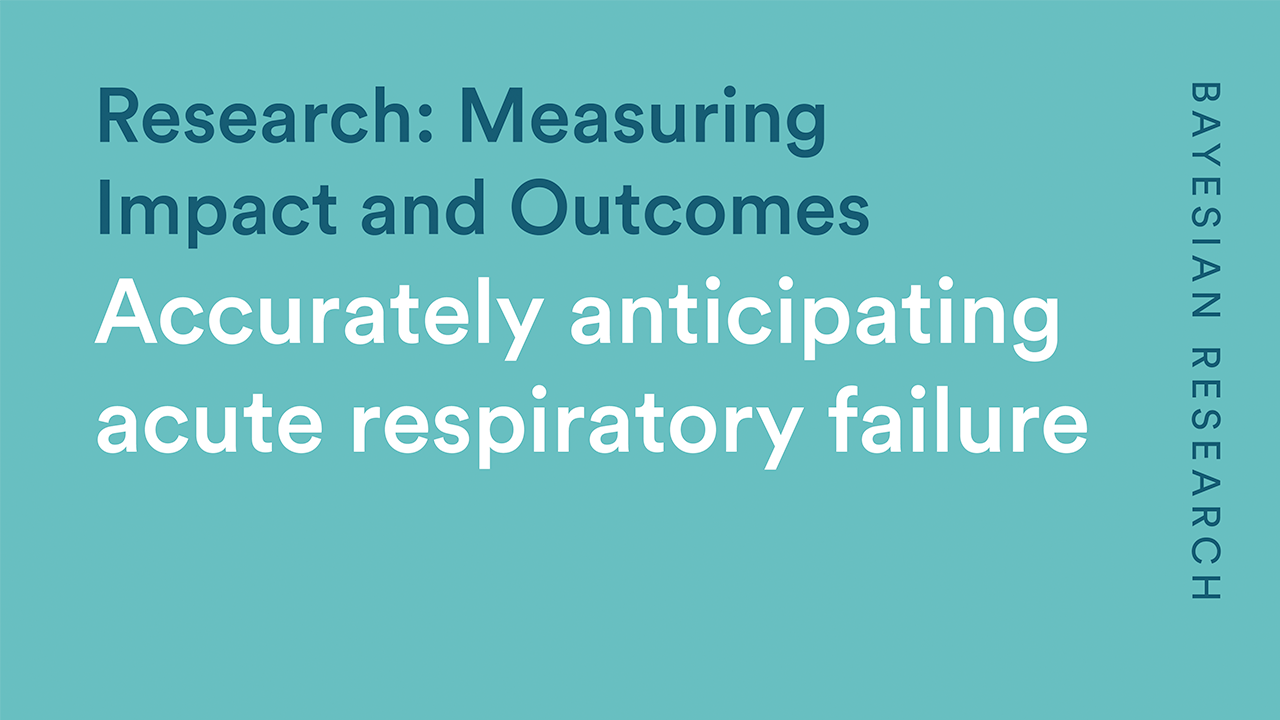Bayesian’s platform accurately anticipates acute respiratory failure in COVID-19 patients
Many hospitalized COVID patients experience acute respiratory failure (ARF), but it has been difficult to predict which patients will need advanced respiratory support (e.g., mechanical ventilation) and which will not. Many predictive models have been reported for COVID patients, but most predict only the most severe outcomes (ICU admission, death, etc.) and only make a single prediction at the time a patient is admitted to the hospital. In an article published this week in Critical Care Explorations, we describe ARC (Anticipating Respiratory failure in COVID), a model that continuously monitors patients throughout a hospital encounter and identifies patients at risk of experiencing ARF. We collaborated with researchers at the University of Washington to validate the model on data collected from eight hospitals across two geographically distinct regions. At 75% specificity, the model achieved 77% sensitivity and predicted ARF at a median time of 32 hours prior to onset.
In addition to ARC, Bayesian has also trained models that predict ARF in non-COVID patients. Early identification of these patients would facilitate proactive care, leading to better patient outcomes and lower costs for health systems. Even prior to COVID, respiratory failure accounted for ~30% of unplanned transfers to intensive care units.
Read the full paper here.


